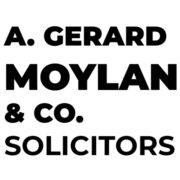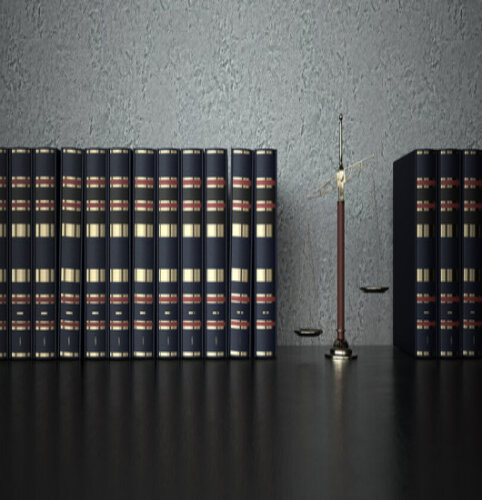Best General Litigation Lawyers in Dublin
Share your needs with us, get contacted by law firms.
Free. Takes 2 min.
List of the best lawyers in Dublin, Ireland
About Litigation Law in Dublin, Ireland
Litigation law in Dublin, Ireland, encompasses a broad range of legal disputes that require resolution through the courts. These disputes can range from commercial and civil cases to family law matters and personal injury claims. Dublin, being the capital and largest city of Ireland, is home to several courts including the District Court, Circuit Court, and High Court, which handle different types of litigation cases.
Why You May Need a Lawyer
There are various situations where individuals or businesses may require legal assistance in litigation, including:
- Commercial Disputes: Issues involving contracts, partnerships, or business transactions.
- Personal Injury Claims: Seeking compensation for injuries caused by accidents, medical malpractice, or workplace incidents.
- Family Law Matters: Divorce, child custody, and property disputes.
- Employment Law: Disputes between employers and employees, including wrongful dismissal and discrimination claims.
- Property Disputes: Conflicts over property ownership, leases, or tenancy agreements.
- Debt Recovery: Legal actions to recover owed money.
Local Laws Overview
Understanding local laws is crucial for navigating legal disputes in Dublin. Some key aspects of Dublin's litigation laws include:
- The Courts System: The legal system in Dublin is structured with several tiers, including the District Court for minor claims, the Circuit Court for more significant cases, and the High Court for complex or high-value disputes.
- Statutes and Precedents: Legislation such as the Civil Liability Act and Employment Equality Act, alongside case law, play a major role in litigation.
- Alternative Dispute Resolution (ADR): Mediation and arbitration are encouraged to resolve disputes without the need for a court trial.
- Time Limits: There are strict statutes of limitations governing how long a party has to file a lawsuit. For instance, most personal injury claims must be brought within two years.
- Legal Costs: Legal expenses can be significant, and in some cases, the losing party may be ordered to pay the winning party's costs.
Frequently Asked Questions
1. What is litigation?
Litigation is the process of taking legal action against an individual, business, or entity to resolve a dispute through the courts.
2. How long does a litigation case take in Dublin?
The duration of a litigation case can vary widely depending on the complexity of the case and the court's schedule. Simple cases may take several months, while complex cases can take several years.
3. Can litigation be avoided?
Yes, litigation can often be avoided through alternative dispute resolution methods such as mediation or arbitration, which can be faster and more cost-effective.
4. What are the costs associated with hiring a litigation lawyer in Dublin?
The costs can vary widely based on the lawyer's experience, the complexity of the case, and the time involved. It is important to discuss fees and potential costs upfront with your lawyer.
5. What kind of evidence is required in a litigation case?
Evidence can include documents, emails, contracts, witness statements, and expert testimonies that support your claims or defense in the case.
6. What happens if I lose my case?
If you lose your case, you may be liable for the legal costs of the opposing party in addition to your own costs. It is also possible to appeal the decision if there are grounds to do so.
7. Can I represent myself in court?
You have the right to represent yourself, but it is generally advisable to have legal representation due to the complexities of the legal system.
8. What is a solicitor and how do they differ from a barrister?
A solicitor typically handles initial case preparation, legal advice, and negotiations. A barrister is often brought in for specialized advice or to represent you in higher courts.
9. How do I find the right lawyer for my case?
Seek recommendations, check credentials, and consider the lawyer's experience in handling similar cases. Many firms offer initial consultations to discuss your case and assess compatibility.
10. What should I bring to my initial consultation with a litigation lawyer?
Bring any relevant documents, evidence, correspondence, and a list of questions or concerns you may have about your case.
Additional Resources
For further assistance, consider reaching out to the following resources:
- Law Society of Ireland: The regulatory body for solicitors in Ireland, providing information and resources.
- Courts Service of Ireland: Offers information about the court system, services, and court locations.
- Citizens Information: Provides comprehensive information about rights and entitlements, including legal advice services.
- Free Legal Advice Centres (FLAC): Offers free and confidential legal advice to those in need.
Next Steps
If you need legal assistance in a litigation matter, consider taking the following steps:
- Identify Your Needs: Clearly outline the nature of your legal issue and what you hope to achieve.
- Consult a Lawyer: Seek initial consultations with a few lawyers or law firms to find one that suits your needs.
- Gather Documentation: Collect all relevant evidence and documents related to your case.
- Discuss Costs and Fees: Ensure you have a clear understanding of the potential costs involved and any payment structures available.
- Follow Legal Advice: Once you have engaged a lawyer, follow their advice and instructions to effectively navigate your litigation case.
Ensuring you have the right legal support and understanding your options can make a significant difference in the outcome of your litigation case.
Lawzana helps you find the best lawyers and law firms in Dublin through a curated and pre-screened list of qualified legal professionals. Our platform offers rankings and detailed profiles of attorneys and law firms, allowing you to compare based on practice areas, including General Litigation, experience, and client feedback.
Each profile includes a description of the firm's areas of practice, client reviews, team members and partners, year of establishment, spoken languages, office locations, contact information, social media presence, and any published articles or resources. Most firms on our platform speak English and are experienced in both local and international legal matters.
Get a quote from top-rated law firms in Dublin, Ireland — quickly, securely, and without unnecessary hassle.
Disclaimer:
The information provided on this page is for general informational purposes only and does not constitute legal advice. While we strive to ensure the accuracy and relevance of the content, legal information may change over time, and interpretations of the law can vary. You should always consult with a qualified legal professional for advice specific to your situation.
We disclaim all liability for actions taken or not taken based on the content of this page. If you believe any information is incorrect or outdated, please contact us, and we will review and update it where appropriate.













